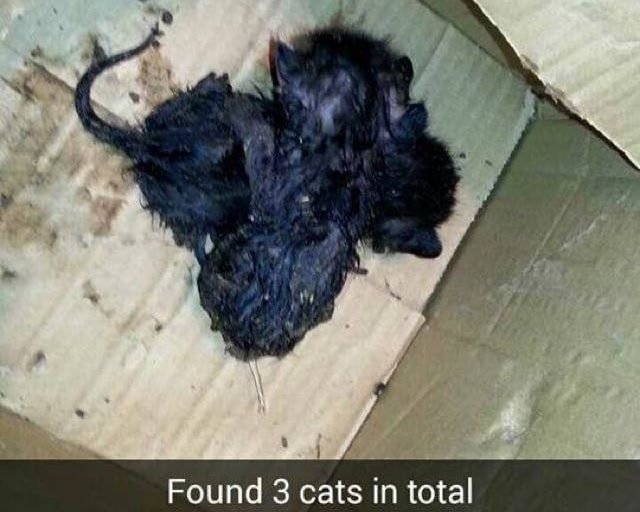NEW ZEALAND - More to love? Or more to kill?
A Wellington family is currently struggling to help their obese cat lose weight has highlighted the battle of the bulge facing a quarter of Kiwi cats.
Arthur, who is 11, tips the scales at almost 18 pounds - but has failed to lose any weight since going on a diet two months ago.
Arthur had been gaining weight over the course of several years and his family is worried he will become diabetic if he doesn’t slim down soon.
The ‘Garfieldisation’ of pet cats, the tendency to feed them until they are quite chubby and very lethargic, was one of the main health problems facing domestic cats today, New Zealand Veterinary Association companion animal spokeswoman Rochelle Ferguson has stated.
Arthur from Brooklyn is fighting the battle of the bulge, but he is not alone. About a quarter of all New Zealand cats are obese.
Just about two months ago Arthur’s owner Jeff Lyall consulted a Brooklyn vet and decided to put him on a diet.
“After two months of a strict feeding routine, we noticed he wasn’t getting any slimmer. Sometimes he wasn’t even hungry,” Lyall stated.
The family worried Arthur was somehow finding food outside the home. And so, they posted on social media website Neighbourly to warn people about Arthur paying a visit - and asked neighbors not to feed him.
They also now plan to put a collar around Arthur outlining his new diet regime.
However, it might not just be Arthur’s “starving cat” impression that was leading to overfeeding by neighbours, Lyall stated.
Arthur weighs in between 7 and 8 kilograms. The average New Zealand cat should weigh between 4 and 5.5 kilograms Vet Rochelle Ferguson said.
He worried that Arthur was somehow stealing cat food while neighbors were away.
“People are moulding their cats to a typical fluffy Garfield type,” Ferguson stated.
However Garfield was by any means a poster child for a healthy cat, she said.
The average Kiwi kitty should weigh about 8 pounds. Larger cats could get up to 12 pounds.
“A huge factor is their owners don’t perceive them as overweight,” Ferguson stated.
She went on to add that obesity in cats has become so normalised it was hard to recognise.
Although some people may enjoy cuddling their big Garfield cats, obesity could very well lead to or serious health problems including diabetes and arthritis.
The very best approach was to regulate your cat’s weight, starting when they were young, aged between four and six months, Ferguson stated.
If they were older rescue cats (like Arthur is) the only foolproof way to help them lose weight was to keep them inside on a diet that restricts calories to about 70 percent of their normal consumption, she stated.
Spending 10 minutes playing with the cat with a laser pointer may also help your cat slim down a bit, says Ferguson.
However, cats may not need routine exercise like other animals.
“It is hard when your cat is at your feet to say no.”
A recent study of pet cats in one New Zealand city found about 27 percent of house cats were obese and this was supported by international trends, Ferguson stated.
Reducing a cat’s weight to about half its original size was possible. She has successfully treated many overweight and obese cats in her 20 years as a practicing vet in Wellington.
And so, basically, there is hope for Arthur yet.




